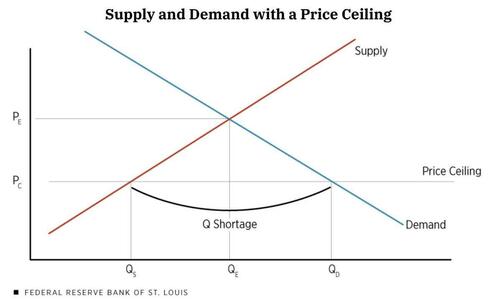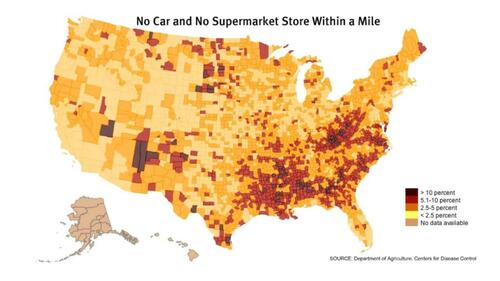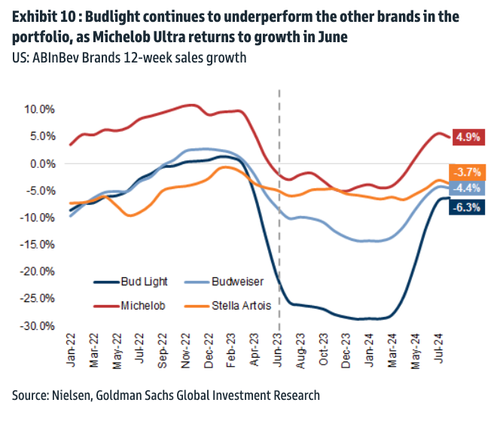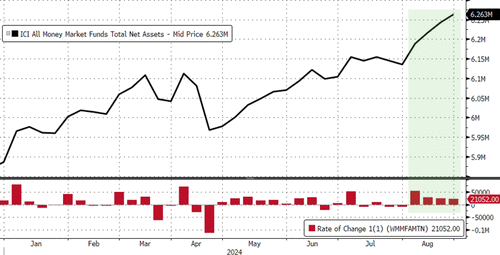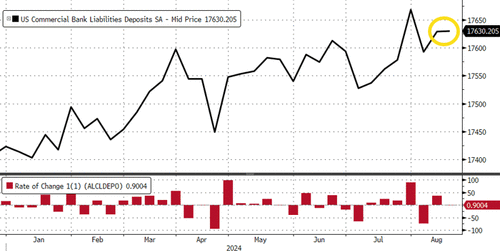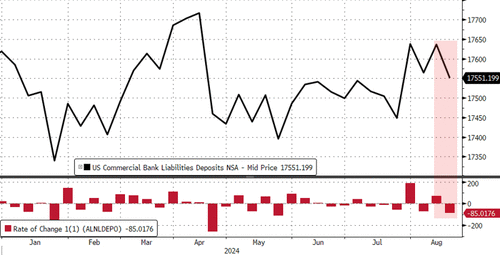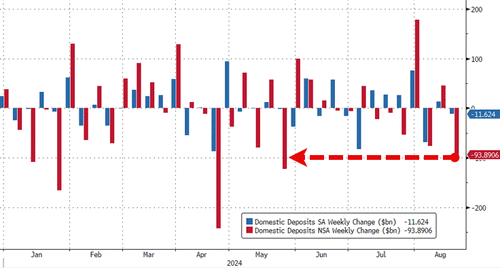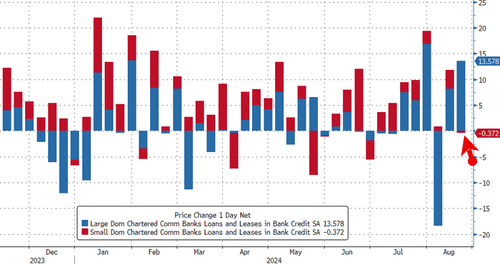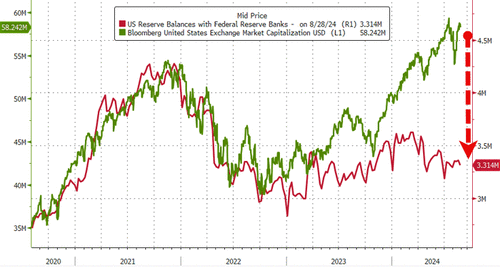Over Half Of People Worldwide Expect Harm From Their Water In Next 2 Years
Authored by Marina Zhang via The Epoch Times (emphasis ours),
A survey across 141 countries found that more than 52 percent of respondents “anticipate serious harm from drinking water in the next two years,” according to a recent study.

The study, newly published in Nature Communications, analyzed data from more than 148,000 adults from the 2019 Lloyd’s Register Foundation World Risk Poll.
Researchers from Northwestern University and UNC found that in the United States, despite over 97 percent of the population having access to clean water, around 40 percent of people anticipated harm.
The lowest rate was reported in Singapore (0.9 percent) and the highest was reported in Zambia (54.3 percent).
The findings showed that having clean water access is not about building more infrastructure, “but a lot more about public perceptions of safety and trust,” the study’s lead author, Joshua D. Miller, a postdoctoral student at the University of North Carolina, told The Epoch Times.
But people’s perception may not be wrong, he said.
Perception vs. Reality
The big question with the finding is if people’s perceptions are true, Miller said.
He points to a recent report published in Science by Swiss researchers, which estimated that 4.4 billion people globally do not have access to clean water.
“We had originally thought it was around maybe about 2.2 billion, but as people started to aggregate more data and try to make some new water quality estimates … it’s now doubled … So that suggests to me that people’s perceptions are already ahead of where we are in the water quality world,” Miller said.
“People have a good sense through taste and smell and historical experiences of experiencing harm from water knowing whether it’s safe or not to drink water.”
On the other hand, Miller highlighted that people’s perceptions drive behaviors that shape their health decisions and outcomes.
“When we mistrust our tap water, we buy packaged water, which is wildly expensive and hard on the environment; drink soda or other sugar-sweetened beverages, which is hard on the teeth and the waistline; and consume highly processed prepared foods or go to restaurants to avoid cooking at home, which is less healthy and more expensive,” Sera L. Young, the study’s senior author, said in a press release.
“Individuals who self-report exposure to unsafe water experience greater psychological stress … and are at greater risk of depression than those who do not,” the authors wrote in their study.
Corruption the Biggest Driver
The Nature Communications study showed that the public’s perception of corruption is the strongest predictor of their anticipation of risks from drinking water.
Several factors may explain why different countries have different rates of anticipation of harm.
Among these, public perception of corruption is the biggest factor, the study says, accounting for more than 50 percent of the differences among countries.
Additionally, countries that are corrupt also tend to have less clean water available and invest less in their communities and infrastructure, Miller said.
However, people’s opinion of the government cannot account for all the differences.
The authors also found that two-thirds of individuals who anticipate harm from water in the next two years said that their government did a “good job” in ensuring safe drinking water.
Other major factors that may increase a country’s rate of anticipation of harm include having a high proportion of people harmed by drinking water, and or having a high proportion of deaths linked to drinking water.
Growing Water Concerns
At the individual level, people who were female, educated, and reporting financial difficulties tended to anticipate harm from drinking water.
“I think people are increasingly becoming aware of water issues and other environmental threats,” Miller said.
“It’s just report after report of the dire situation we are in,” Miller said, listing increased floods, droughts, runoff, contamination, and extreme weather events that contaminate and damage water infrastructure.
Despite extensive water processing and purification to remove the contaminants, some remnants would remain.
At the same time, researchers are finding new chemicals and substances in the water supply that may pose risks to health, which require more studies and setting new regulations.
“I don’t want to malign utility providers in the United States, it is really difficult,” Miller said. “Every time we impose a new restriction or threshold at which they have to achieve water quality, that means more costs, and either they have to ask consumers to pay more or they aren’t going to meet the guidelines. And I think that’s the constant tension that the government faces with setting new regulations, and why sometimes it’s really slow.”
Though research may find contaminants that are potentially harmful, it is difficult for the government to make new regulations due to the cost implications.
“We really have to reckon with the value of water and how much we’re willing to pay for it,” Miller said. “There is a growing list of contaminants we are potentially concerned about, and there’s varying levels of evidence about how harmful they are and at what threshold. So I think it requires a lot of really clear public health messaging about what is in our water and whether it is harmful or not.”
Tyler Durden
Fri, 08/30/2024 – 20:35
via ZeroHedge News https://ift.tt/FkgwQoq Tyler Durden





